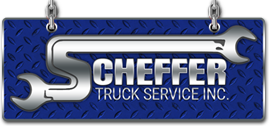Truck drivers have a lot to consider when hauling loads around. The components that make up the truck require maintenance, monitoring of its parts, and reading warning lights closely. Many different issues could enhance the chances of downtime, so professionals highly recommend that a driver be knowledgeable on what to proactively look out for before things that could stop a delivery occur. Truck drivability issues can occur because of poor maintenance, normal wear and tear, and improper driver training. All these issues contribute to the possibility of late, rescheduled, or canceled loads and an increase in poor drive time.
What are truck drivability issues?
There are plenty of issues that could go wrong, and some are like those of a vehicle. Here is a list, to name a few:
- Engine overheating
- Brake issues
- Ball-bearing failure
- Faulty U-joints
How can drivers eliminate these issues, and what to monitor?
A truck engine is the primary source of power, energy, and ignition. In doing so, an engine uses thermal energy to conduct enough strength to get the truck started. Since the engine creates heat when generated, it needs the help of the radiator that holds coolant fluid to keep it cool. The radiator coolant absorbs all the excess heat and creates balance within the thermal components of the engine. A driver can take proactive steps to eliminate an overheating episode by monitoring the truck temperature gauge to identify if it is in red or running hotter than usual or if the engine light has appeared. The driver can also check under the hood for any steam or strange smells that may come about as well. These are all symptoms and signs that an engine is on its way to overheating. Each signal gives the driver time to eliminate the problem by seeking a certified truck technician for proper truck repair.
Brake Repair Indicators
Another truck drivability issue involves dilemmas with the brakes. The brakes give the driver the power to stop entirely and slow down for yielding purposes but mainly to alleviate accidents. With friction, the brake drums and pads connect to the wheel axels and rely on compressed air to bring the truck to a complete stop. Some of the many causes for brake repairs involve excessive heavy loads, lack of maintenance, improperly repaired or replaced brakes, and inappropriate driving styles. Drivers should notice several signs to determine that a truck needs brake repair. High-pitched squealing, grinding, and vibrations when pressing on the brake pedal are signs of an issue with the brake system.
Bearings
With the engine and brakes being two essential components that truck drivers should monitor closely, there is also the possibility of issues with the ball-bearing system. The ball bearings in a truck are necessary because they are a part of what makes the driver's wheels work together. The bearings support the truck's weight and initiate smooth rotation with minimal friction, which helps it to turn correctly while contributing to the brake system. The most common faulty ball-bearing issues are wobbling wheels and uneven tires. While a driver operates a truck, the steering column and the wheels may wobble with increased speeds. Drivers should have ball bearings inspected to guarantee they are free of liquid, rust, and debris by a qualified truck repair technician.
U-Joints
One last possible truck drivability issue is faulty U-joints. The U-joints make up the driveshaft by bringing the transmission and rear differential together. All of this contributes to the driver's ability to maneuver the truck. There are multiple reasons for U-joint failures, such as normal wear and tear and misalignment issues. All truck and vehicle parts have a maximum lifespan with normal wear and tear possibilities, but regular maintenance and upkeep can ensure a driver gets the most out of the truck before repairs or replacements are necessary. To minimize failure due to wear and tear, U-joints must remain lubricated to ensure an extensive lifespan. Misalignment will happen when changes are made to a truck's rear differential and create excessive vibrations while the truck operates. A driver should listen for clicking sounds and these vibrations to determine faulty U-joints. This way, the driver can make the proactive decision to take the truck to a quality truck repair technician to have the U-joints replaced.
Understand the Signs - Prevent Danger
Truck drivability is a vehicle's ability to operate while meeting manufacturer standards. Common issues from a bad engine, faulty brakes, ball bearing failures, and poor u-joints are common truck drivability issues. All of which can be recognized as faulty before complete failure. Trucks communicate that there is a problem through wobbling wheels, vibrating steering wheels, and even odors. Drivers can eliminate downtime and decrease truck drivability issues by getting trucks to a certified truck repair technician for guaranteed repairs and safety.

